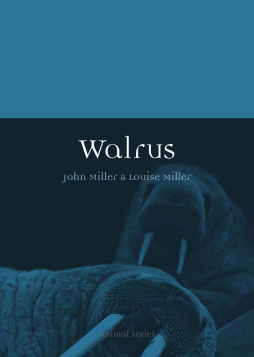
Additional Information
Book Details
Abstract
From Lewis Carroll’s poem “The Walrus and the Carpenter” to the Beatles’s “I am the Walrus,” walruses have played an enigmatic role in popular culture. With their prominent tusks and distinctive whiskers, these odd-looking but charismatic animals have long held a crucial place in the lives and folklore of Arctic indigenous cultures, both as a vital food source and as a part of traditional oral literature. However, commercial trade of walrus products has caused the creatures to be hunted to the brink of extinction, with disastrous effects on human populations in the Arctic.
Combining natural, cultural, and environmental history, Walrus explores the intriguing story of an animal that today is on the front lines of conservation debates. John Miller and Louise Miller describe the problems facing walruses even after the twentieth-century bans on nonindigenous walrus hunting—shrinking pack-ice caused by global warming and the exploitation of Arctic oil and gas resources are destroying the animal’s habitat. Wonderfully illustrated with images of walruses in the wild and from art and popular culture, Walrus offers a refreshing account of these large-flippered mammals while also illustrating the ethical dilemmas they embody, from the intensifying conflict between the developed world and indigenous interests to the impact of global warming on arctic animals.
John Miller is a lecturer in nineteenth-century literature at the University of Sheffield, UK, and the author of Empire and the Animal Body: Violence, Identity and Ecology in Victorian Adventure Fiction. Louise Miller is an independent scholar based in Kent, UK.
